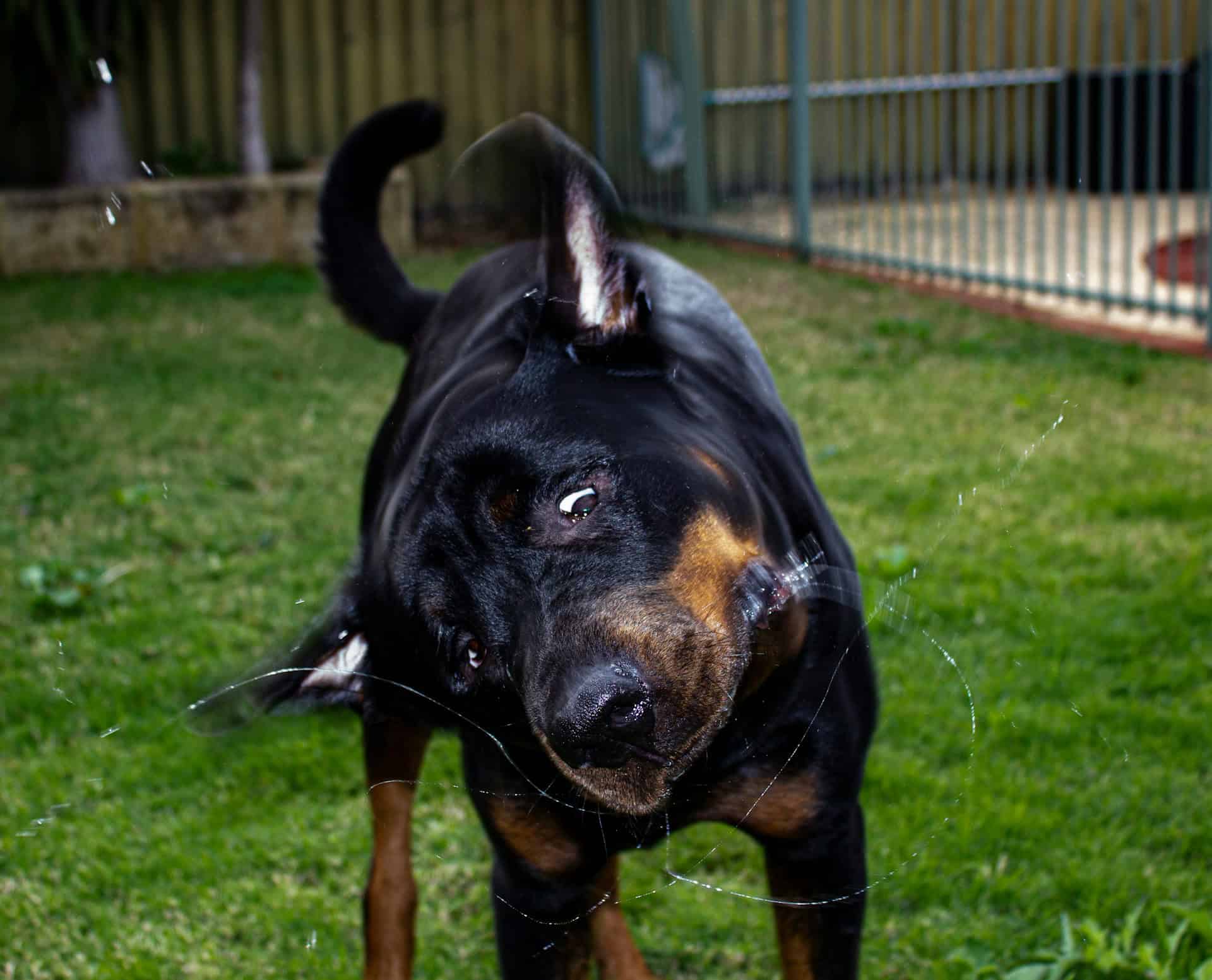
Head Shaking Dogs: Causes and Solutions
Head shaking in dogs can be puzzling and concerning behavior for pet owners. This article explores the various reasons behind why dogs might shake their heads, how to diagnose these causes accurately, and the best solutions to alleviate or prevent this behavior. Understanding the underlying causes, effective diagnosis, and appropriate treatment can significantly improve the quality of life for our canine friends.
Understanding the Causes of Head Shaking in Dogs
Common Triggers
Head shaking in dogs can be triggered by various factors, including ear infections, allergies, and the presence of foreign bodies in the ear canal. Ear infections (otitis) are particularly common and can cause significant discomfort for your pet. Using products like the Calming Herbal Essential Oil Blend may help soothe your dog's anxiety, which can be a secondary effect of the discomfort caused by ear issues.
Identifying Symptoms
The symptoms of head shaking can vary but typically include frequent and vigorous shaking of the head, scratching at the ears, and possible discharge from the ears. If you notice these signs, it's crucial to closely monitor your pet's behavior and check for any redness or swelling in the ear area. Products like the Calming Pet Spray can be used to help calm your dog during these uncomfortable times.
When to Seek Veterinary Help
It's essential to seek veterinary help if the head shaking is persistent or if your dog shows signs of pain or discomfort. Early diagnosis and treatment can prevent more serious complications and help manage the underlying cause effectively. Remember, timely intervention is key to ensuring your dog's health and comfort.
Related: What’s Causing Allergies in Your Pet?

Diagnosing the Cause of Head Shaking
Physical Examination
When you notice your dog frequently shaking their head, it's crucial to start with a thorough physical examination by a veterinarian. This initial step helps to rule out or identify any obvious physical causes such as ear infections, foreign bodies, or skin allergies. During the examination, the vet might check for signs of irritation, discharge, or odor which are common indicators of an underlying issue.
Diagnostic Tests
After the physical examination, your vet may recommend diagnostic tests. These could include blood tests, skin scrapings, or imaging studies like X-rays or an MRI. These tests are essential to uncover less apparent causes of head shaking such as deep-seated infections or neurological conditions.
Interpreting Results
Once the results are in, your vet will interpret them to determine the exact cause of the head shaking. This step is crucial as it guides the subsequent treatment plan. If the cause is related to anxiety or stress, products like the Calming Herbal Essential Oil Blend or the Calming Pet Spray might be recommended to help soothe your pet.
Treatment Options for Head Shaking in Dogs
Medications and Therapies
When treating head shaking in dogs, the approach often involves a combination of medications and therapies. Depending on the diagnosis, your vet may prescribe systemic medications to manage symptoms like inflammation or infection. For dogs experiencing anxiety-induced head shaking, products like Calming Herbal Essential Oil Blend can be soothing. Always consult your vet before starting any new treatment.
Home Care Strategies
Effective home care is crucial in managing head shaking. Regularly cleaning your dog’s ears and providing a stress-free environment can significantly reduce symptoms. Incorporating calming products such as the Calming Pet Spray can help alleviate stress-related head shaking.
Follow-up Care
Consistent follow-up care with your veterinarian is essential to ensure the effectiveness of the treatment plan. Regular check-ups allow for adjustments to the treatment as needed and help prevent future episodes of head shaking.
Related: Reasons Why You Should Choose Natural Pet Grooming Products
Preventing Head Shaking in Dogs
Routine Ear Care
Regular ear care is essential in preventing your dog from shaking their head. Ensure to inspect and clean your dog's ears weekly using gentle, vet-approved solutions. This regular maintenance helps avoid the buildup of wax and debris, which can lead to irritation and infections.
Diet and Allergies
A balanced diet supports your dog's overall health and can prevent issues related to allergies that cause head shaking. Introduce foods that boost the immune system and consider adding supplements like probiotics to maintain a healthy gut. Avoiding known allergens in your dog's environment is also crucial.
Related: 4 Skin Conditions Every Dog Owner Should Know About
Behavioral Considerations
Behavioral factors can influence your dog's tendency to shake their head. Stress and anxiety are significant triggers. Utilizing products like the Calming Herbal Essential Oil Blend and the Calming Pet Spray can help manage your dog's stress levels, thus reducing the frequency of head shaking. Training and providing a stable environment are also key components in managing behavioral issues.
Head shaking in dogs can be a sign of various health issues, ranging from ear infections to allergies. At Gou Gou Pets, we understand the importance of holistic pet care and offer a range of products specifically designed to prevent and treat such conditions. Explore our 'Zen & Wellness Care' section to find the perfect solution for your furry friend. Visit our website today and take the first step towards a healthier, happier pet.
Unlocking Wellness for Your Furry Friend with Gou Gou Pets
Discovering the path to your dog's well-being includes addressing concerns like head shaking, which can stem from various factors such as ear infections, allergies, and behavioral issues. At Gou Gou Pets, our Zen & Wellness Care Products cater to these needs, offering solutions tailored to promote your pet's health and happiness. Regular check-ups, hygiene maintenance, and attentive observation are key in addressing such issues promptly. If symptoms persist, consulting a veterinarian is crucial to ensure your dog's comfort and health. With proactive care and guidance, you can pave the way for your furry companion to lead a joyous and healthy life.
Related: Natural Sedatives for Dogs: Calming Solutions for Anxious Pups
Share
